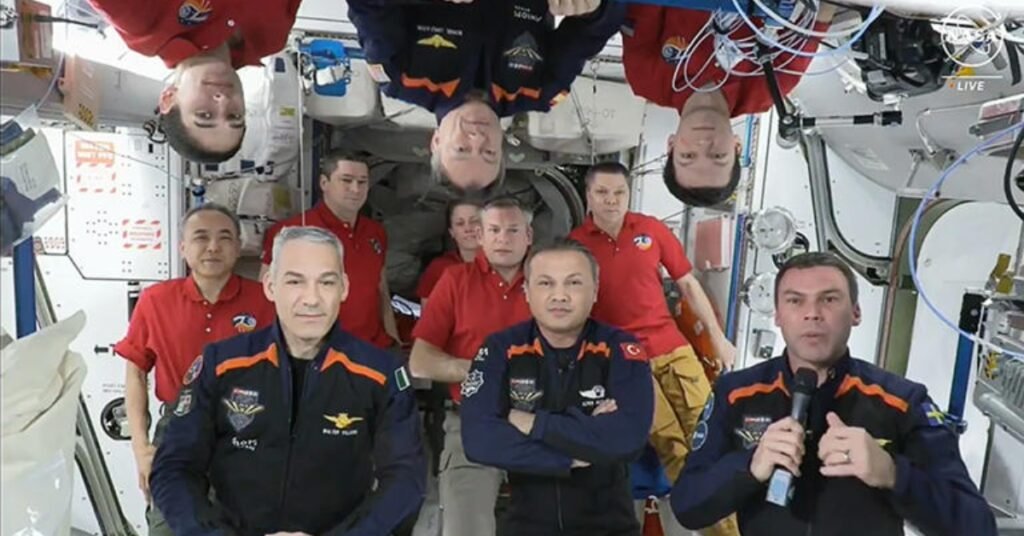To promote regional stability, NATO’s Assistant Secretary-General for Operations, Tom Goffus, visited Kosovo on Wednesday (5 July 2023).
During his visit, Mr. Goffus met with representatives from Kosovo’s institutions, the Commander of the NATO-led KFOR mission, the Head of the European Union Rule of Law Mission in Kosovo (EULEX), and other members of the international community.
Emphasizing the situation’s urgency, Mr. Goffus called on both Pristina and Belgrade to take immediate steps toward de-escalation.
He stressed the need for coordination between both sides and emphasized respecting existing agreements.
While acknowledging the vital role of the KFOR mission in maintaining stability, Mr. Goffus made it clear that a long-term solution lies in political measures.
He highlighted the importance of constructive engagement between Kosovo and Serbia in the EU-facilitated dialogue.
Mr. Goffus urged both sides to implement the Basic Agreement and its Implementation Annex, agreed upon in Ohrid, as soon as possible and in their entirety.
Furthermore, he reaffirmed that the KFOR mission would continue to fulfill its mandate of creating a safe and secure environment in Kosovo, as mandated by the UN Security Council Resolution 1244 of 1999.
Prioritizing Political Solutions

NATO’s Assistant Secretary-General for Operations stressed the significance of political engagement between Kosovo and Serbia to achieve lasting stability.
While the KFOR mission plays a crucial role in the current environment, more is needed to replace the need for diplomatic efforts and dialogue.
Mr. Goffus emphasized that Pristina and Belgrade must work together to find mutually agreeable solutions and defuse tensions.
The two sides can contribute to a safer and more stable Kosovo and the broader Western Balkans region by adhering to existing agreements and coordinating their actions on the ground.
Implementing Agreements for Lasting Stability
The Basic Agreement and its Implementation Annex agreed upon in Ohrid, hold the key to establishing lasting stability in Kosovo.
Mr. Goffus called on Kosovo and Serbia to implement these agreements swiftly and fully.
Doing so, they would contribute to resolving ongoing disputes and foster an environment conducive to peace and security.
NATO’s continued support for the KFOR mission underscores its commitment to ensuring a safe and secure environment in Kosovo.
However, it is vital for Kosovo and Serbia to actively engage in the EU-facilitated dialogue and demonstrate their commitment to resolving differences peacefully.
The Role of KFOR and UN Security Council Resolution 1244
The KFOR mission, operating under the authority of the UN Security Council Resolution 1244 of 1999, remains steadfast in its mission to create a safe and secure environment in Kosovo.
The resolution, adopted to maintain peace and stability in the region, grants KFOR the mandate to carry out its operations.
Mr. Goffus reiterated NATO’s commitment to upholding this mandate and ensuring the safety of the people in Kosovo.
By working together with international partners and respecting the authority of the UN Security Council Resolution 1244, NATO aims to contribute to lasting security and stability in Kosovo and the wider Western Balkans region.
Conclusion
NATO’s Assistant Secretary-General for Operations, Tom Goffus, visited Kosovo to reinforce NATO’s dedication to regional stability.
He called for an immediate de-escalation between Pristina and Belgrade, stressing the importance of political engagement and adherence to existing agreements.
Mr. Goffus urged Kosovo and Serbia to implement the Basic Agreement and its Implementation Annex agreed in Ohrid and emphasized the ongoing role of the KFORmission in providing a safe and secure environment.
NATO recognizes that while the KFOR mission plays a crucial role, a lasting solution can only be achieved through political measures.
The Assistant Secretary-General highlighted the need for constructive dialogue between Kosovo and Serbia, urging both sides to work together to find mutually agreeable solutions and coordinate their actions.
Implementing the Basic Agreement and its Implementation Annex, agreed upon in Ohrid, is vital for establishing lasting stability.
By fully implementing these agreements, Kosovo and Serbia can contribute to resolving ongoing disputes and create an environment conducive to peace and security.
NATO remains committed to supporting the KFOR mission, which operates under the authority of the UN Security Council Resolution 1244.
This resolution grants KFOR the mandate to maintain peace and stability in Kosovo.
Mr. Goffus reiterated NATO’s dedication to upholding this mandate and ensuring the safety of the people in Kosovo.
In conclusion, NATO’s visit to Kosovo underscores its commitment to regional stability.
The organization stresses the urgency of de-escalation between Pristina and Belgrade, emphasizing the importance of political engagement and the implementation of existing agreements.
By working together and respecting international mandates, NATO aims to provide lasting security and stability in Kosovo and the wider Western Balkans region.
Get our best stuff sent straight to you! Join our WhatsApp Channel.






